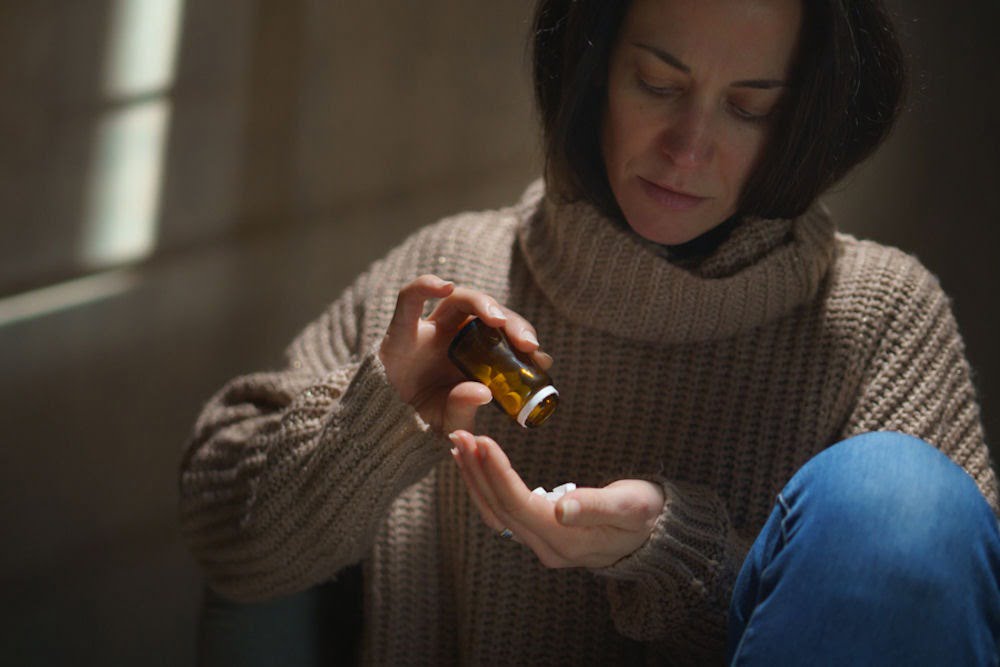One should always be careful when looking at addiction treatment options for themselves or a loved one. There are many different options out there, and some are more beneficial than others. Not only does the level of care make a difference, but the type of treatment matters too. Rather than taking a guess at treatment options, you should take the time to make an informed decision.
Reducing Relapse Rates
Relapse rates are highest for individuals who don’t understand their treatment options and choose the wrong level of care for them. You want to ensure that whether it’s you or your loved one going to treatment, you’re making the right choice.
Research has shown that when patients understand their choices and treatment options, they are more likely to choose the highest level of care for themselves. This improves the chances of successfully recovering from addiction and reduces relapse rates post-treatment.
We want to ensure that whether it’s you or your loved one going to treatment, you’re making the right choice. With so many facilities to choose from, it’s easy to overlook some vital information while you try and find a place that can help.
Below, you can get some insight as to which option will suit your needs the best.
Understanding Levels of Care
While researching different treatment facilities, you may see a bunch of different acronyms. This can be very confusing when you don’t know what each one means. These acronyms determine different levels of care. Each level of care is for different people and addiction severity. Below are the most common ones:
- Inpatient or residential: Inpatient treatment is when someone who needs help in overcoming an addiction or mental health issue lives at a hospital for several weeks, in order to receive that help. Residential treatment programs are like inpatient treatments, but these last much longer (often months) and often take place outside of hospitals.
- PHP: A partial hospitalization program is a structured and supervised day treatment program. It allows people with severe mental illness or addiction to receive the support they need to function more effectively in everyday life, without requiring a hospital stay.
- IOP: An intensive outpatient program is a treatment program where a person in recovery from addiction meets with a counselor and other recovering addicts for several hours each day. It can be beneficial because it’s intensive, requiring patients to spend many hours daily in therapy.
- OP: An outpatient program is a structured program that allows individuals to continue to work or live at home while receiving treatment. Patients are seen for hour-long sessions over a set time period.
Before choosing a specific level of care, you should always get an evaluation from an addiction specialist. These levels of care help people in different ways and choosing the wrong one can be detrimental. For example, someone with a severe addiction that has had multiple relapses should not go straight to an IOP. Going to the right level of care will provide you or your loved one with the best chances of recovery.
Why Dual Diagnosis Therapy is Important
One of the leading causes of addiction is an underlying mental illness. Substance use often begins between the ages of 14 and 24 due to the impulsive behaviors young people have. It’s no coincidence that this is also when symptoms of mental illness typically arise. Symptoms of mental illness often lead to self-medication with different substances.
Unfortunately, our youth doesn’t always learn about the importance of mental health or recognizing mental illness symptoms. Beginning to show the signs of depression or anxiety can be very confusing and scary. Young people are typically not going to tell their friends or family what they’re experiencing. Even people who develop symptoms later in life may turn to alcohol or drugs to calm their minds.
When looking at options for treatment, the facility should always offer dual diagnosis therapy. To have the best chances of success, the facility needs someone who understands and knows how to treat mental illness. Therapists and counselors address mental illness in a variety of ways, including through non-narcotic medications. Others opt for more holistic treatments or a combination of the two.
A Drug and Alcohol Rehab Center in Portland Offers Help
 If you’re tired of looking everywhere for the best option for addiction treatment, Crestview Recovery is here. We have a facility that caters to individuals from Washington, Oregon, Idaho, Montana and nationally. At our 30-bed facility, we treat both men and women. Once you go through detox with our local partner, you can begin the process of treatment for any addiction, including:
If you’re tired of looking everywhere for the best option for addiction treatment, Crestview Recovery is here. We have a facility that caters to individuals from Washington, Oregon, Idaho, Montana and nationally. At our 30-bed facility, we treat both men and women. Once you go through detox with our local partner, you can begin the process of treatment for any addiction, including:
- Heroin addiction
- Prescription drug addiction
- Alcohol addiction
- Meth addiction
- Opioid addiction
Crestview Recovery specializes in dual diagnosis treatment as well as a wide range of other therapies. Our team of counselors can also help you deal with trauma in a one-on-one environment. You can easily transition through our different levels of care, including the opportunity for 90-day rehab treatment. Call us today at 866.262.0531 to begin taking control of your life.
































